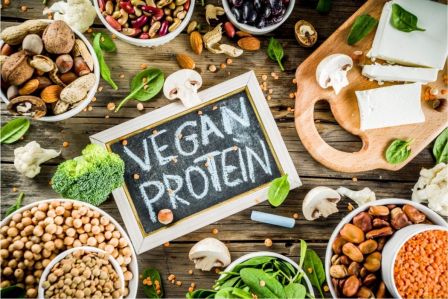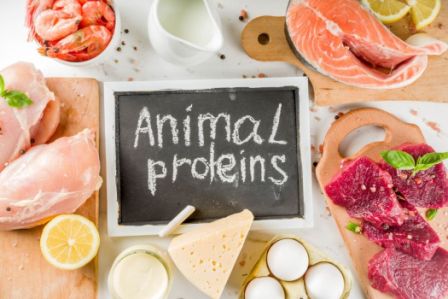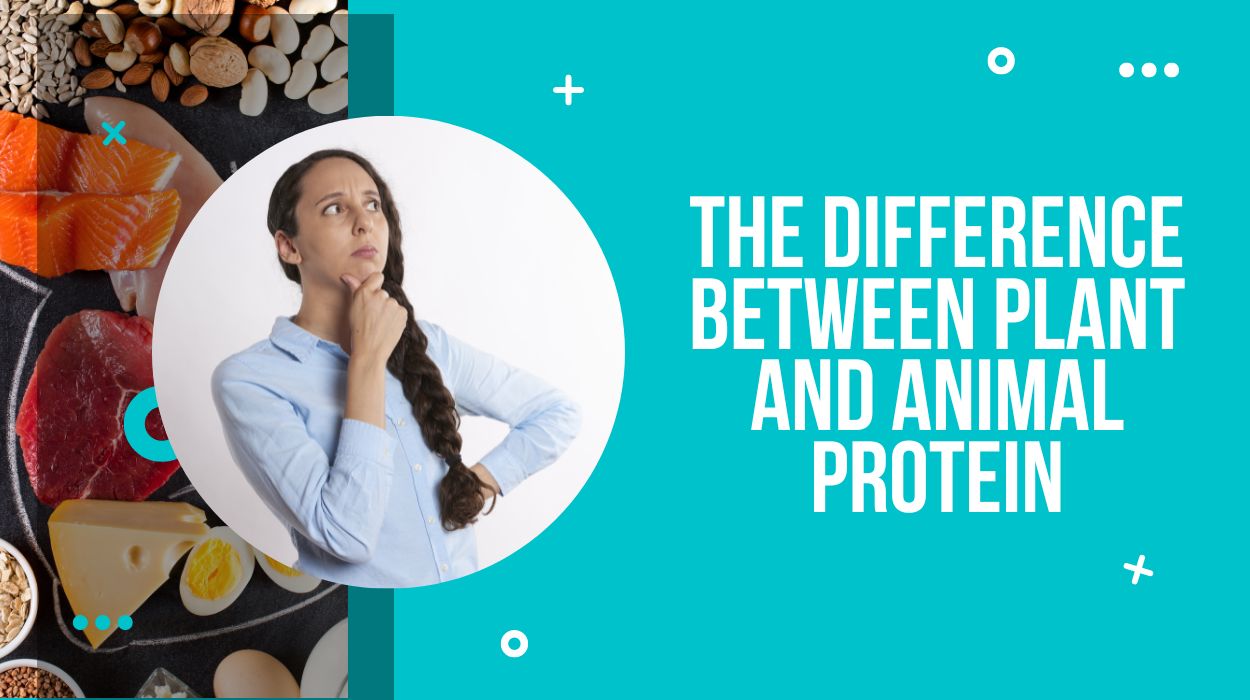Proteins play an essential role in our overall body functioning. Our body needs proteins in every corner; however, it does not store proteins naturally, unlike other nutrients.
The ways to get complete proteins are through diet and supplements. Foods derived from both plants and animals have proteins, but there are differences. One difference is in terms of amino acids.
We all know that proteins are made up of amino acids. Our body needs 22 amino acids to function correctly, but there are nine essential amino acids that our body cannot produce. A diet that has all essential amino acids is known as a complete protein source.
Most animal proteins are complete sources, while plant proteins are incomplete sources with some exceptions. Go on and read the full article to understand the differences between Plant and Animal Protein. But first, let’s know the meaning of both individually!
What is Plant Protein?

Plant protein is the protein derived from plants, not from fish or any other animals. Although it includes various foods, it is mainly found in nuts, legumes, seeds, and beans.
Rich Sources of Plant Protein are:
- Legumes: Chickpeas, peanuts, split peas, lentils, and mung beans.
- Nuts: Almond, walnut, cashew, hazelnut, pistachio, pecan, and Brazil nut.
- Seeds: Sunflower, chia, sesame, poppy, Alsi (flex), squash, and hemp.
- Vegetables: Potatoes, corn, green peas, broccoli, avocado, spinach, brussels sprouts, etc.
- Beans: All beans contain protein; soybean is at the highest position among them.
- Processed: Tofu, tempeh, texturized vegetable protein (TVP), etc.
You May Like to Read: Tofu vs Paneer
What is Animal Protein?

Animal Proteins is the protein derived from the animals. Although plant protein is becoming popular these days, animal proteins have always been considered more effective.
Rich sources of Animal Protein are:
- Fresh Fish, shellfish, and other seafood
- Poultry: Turkey, Chicken, and duck
- Red meat: Lamb, beef, and pork
- Eggs
- Dairy Products: Milk, cheese, yogurt, and whey
Now the time has come to discuss the differences between plant and animal protein. So, let’s get started.
Animal Protein Vs. Plant Protein
Adults require 30 grams of protein per meal; it sounds a lot! Anyways, does it matter if that protein is from animal food or plant food? Apparently, yes! That is why it is necessary to understand the primary differences between animal and plant protein.
1. Amino Acid Profile:
Earlier, we have already discussed this point! Proteins and amino acids are used for metabolic activities in our bodies. But different protein sources contain different types of amino acids.
Animal protein contains a good balance of amino acids; on the other hand, plants protein lack some amino acids.
As already told, our body does not produce nine essential acids, and a diet that contains all the essential amino acids is a complete source of proteins.
Most animal proteins are complete sources, while plant proteins lack one or more essential amino acids. Some studies have shown soy as an exception among plant proteins as it contains all the essential amino acids our body needs to function correctly.
2. Carb and Calorie Content:
Plants protein contains more carbohydrates and calories content as compared to animal proteins. For instance, a beef having 25 grams of protein contains only 210 grams of calories while peanut butter with 25 grams of protein contains 587 grams of calories; that’s a lot!
We suggest you go for animal protein if you follow a low carb (20-50 grams per day) or keto diet. But if your calorie and carb consumption is more liberal, then plant proteins are a good choice.
3. Muscle Building Benefits:
Bodybuilders, athletes, and gym-goers consume proteins to build muscles and increase the recovery rate of muscles after a workout.
Nowadays, whey protein—a plant protein—is becoming popular among those who want to build muscles. Many people also take a combination of different types of plant proteins.
However, animal proteins prove to be more effective if you want to build maximum muscle-building effect per gram of protein and calories. Overall, both provide benefit to develop muscles and fastens the recovery of muscles.
4. Associated Nutrients:
Usually, proteins come with a variety of other nutrients such as vitamins, carbs, and fats. Both animal and plant proteins have benefits in associated nutrients.
Some nutrients such as Vitamin B12, Vitamin D, heme-iron, and zinc are high in animal proteins. In contrast, plant proteins include plenty of nutrients lacking in animal proteins such as fiber, Vitamin C, antioxidants, and flavonoids.
So, it depends on you what nutrients you want to gain and proteins in one diet.
4. Absorption:
Our body absorbs and digests animal protein efficiently than plant protein; soy is an exception. Many studies suggest that one has to 20-25% more plant proteins to absorb amino acids equivalent to amino acids your body will absorb from animal proteins.
5. Health Benefits and Risks:
Both animal and plant protein provide numerous health benefits to the body.
A diet rich in plant proteins reduces the risk of heart diseases, Type-2 diabetes, and obesity. On the other hand, a diet rich in animal proteins helps maintain cholesterol levels and weight and increases muscle mass.
But keep in mind consumption of processed red meat can increase the risk of diabetes, heart diseases, and other chronic diseases (unprocessed red meat are usually healthy).
The Bottom Line
Increasing the consumption of protein—whether from an animal or plant diet—provides numerous benefits. But it would be best to understand the differences to know how your body will react to animal or plant proteins.
We suggest you focus on eating a wide variety of foods, including both animal and plant protein. However, if you are vegan and vegetarian, you focus on mixing every type of plant protein in your diet.
So, that’s it, guys! We hope that the article helped clear your doubts regarding plant and animal protein. If you have any further doubts or queries, then comment below.


